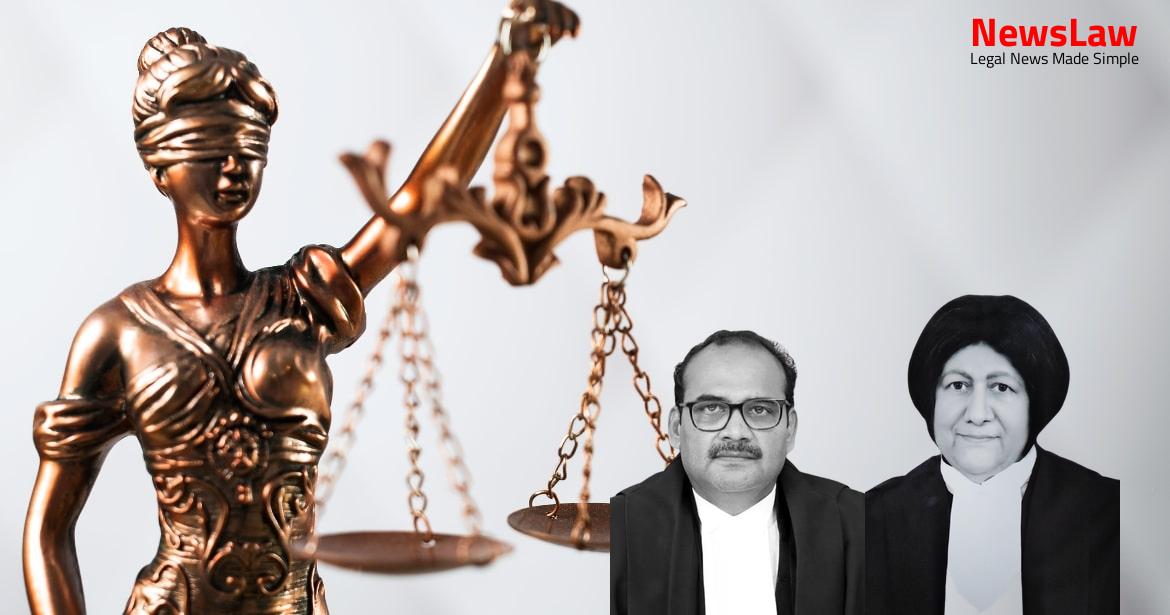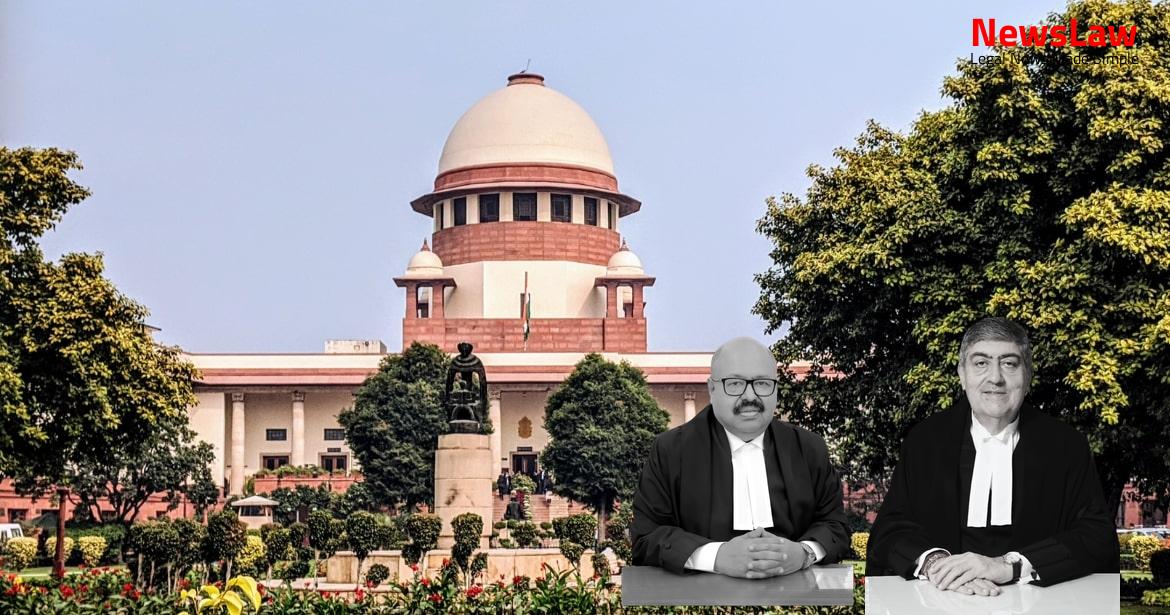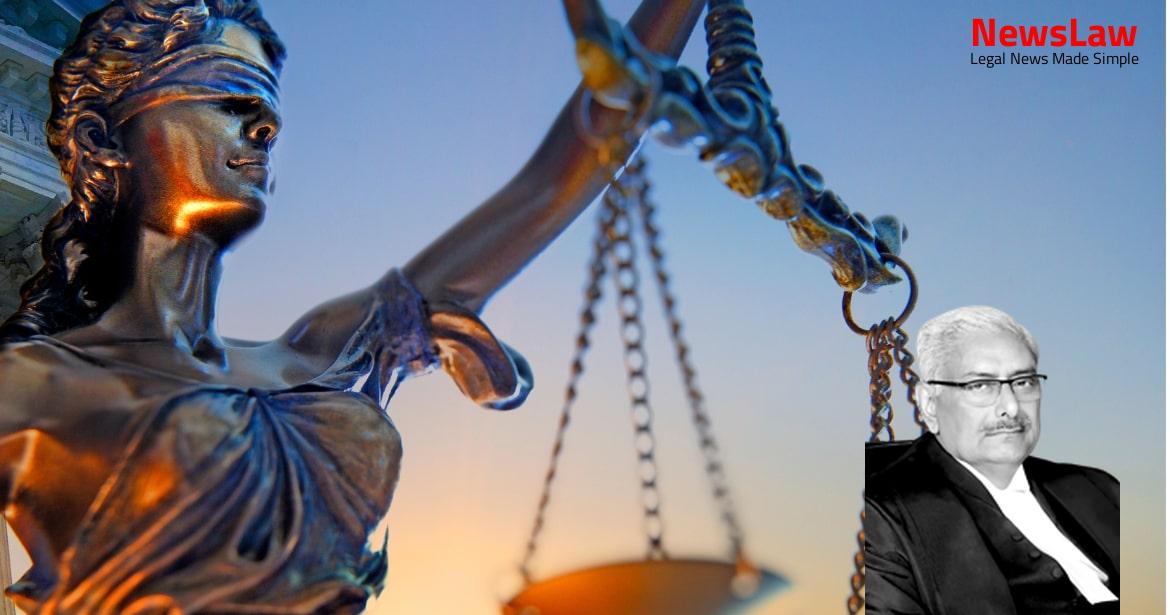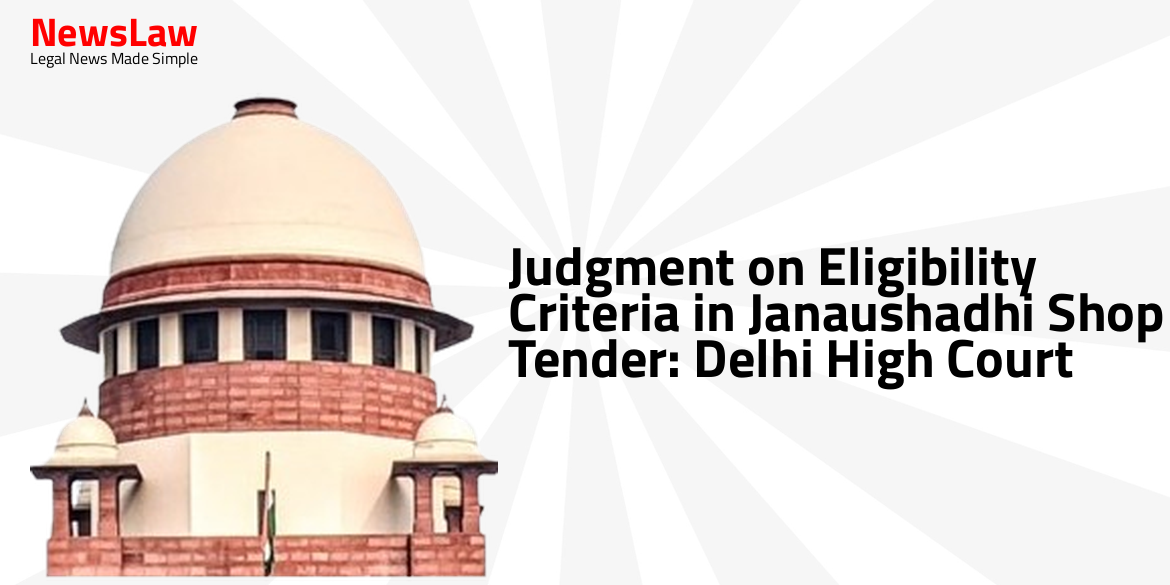In a recent high-profile case, the court’s legal analysis played a crucial role in determining the outcome of the interim maintenance issue. The court’s ruling provided important insights into how future maintenance obligations should be decided, considering various factors such as income, dependents, and changing circumstances. This case sheds light on the complexities involved in such legal matters and highlights the importance of a thorough legal analysis by the court.
Facts
- Interim maintenance for the son reduced to Rs.15,000/- per month
- Actual educational expenses amounting to Rs.15,000/- per month considered meagre for maintenance of the child
Also Read: Analysis of Financial Statements as Acknowledgment in Limitation Act Case
Arguments
- Ms. Anitha Shenoy, senior counsel for the Respondent, argued that the Respondent fulfills his obligations towards his son and incurs over Rs.1,00,000 for his educational expenses.
- The Respondent is a Pilot whose emoluments have decreased due to the reduced number of flying hours and grounding of commercial flights.
- The aviation industry has been severely impacted by the COVID-19 pandemic.
Also Read: Landmark Legal Analysis in Conviction Appeal Case
Analysis
- The High Court ruled that the Appellant does not qualify for maintenance due to being employed.
- The Respondent was directed to pay the Appellant Rs.25,000 per month for interim maintenance.
- The educational expenses of the child were to be covered by the Respondent.
Also Read: Analysis of Territorial Jurisdiction in Arbitration Transfer Petition
Decision
- The Respondent is ordered to pay Rs.30,000/- per month for the child’s expenses and Rs.11,000/- per month for house rent.
- The Respondent must cover all educational and medical expenses for the child.
- Maintenance issue to be decided by the concerned court considering income and dependents.
- The Respondent will also pay a lump-sum of Rs.1,00,000/- towards litigation expenses.
- The concerned court should make a final decision within six months.
- Parties can apply to the court in case of future change of circumstances and should disclose income and assets.
- The impugned judgment is set aside, and pending applications are disposed of.
Case Title: UMA PRIYADARSHINI S Vs. SUCHITH K NAIR (2022 INSC 17)
Case Number: C.A. No.-000204-000206 / 2022



